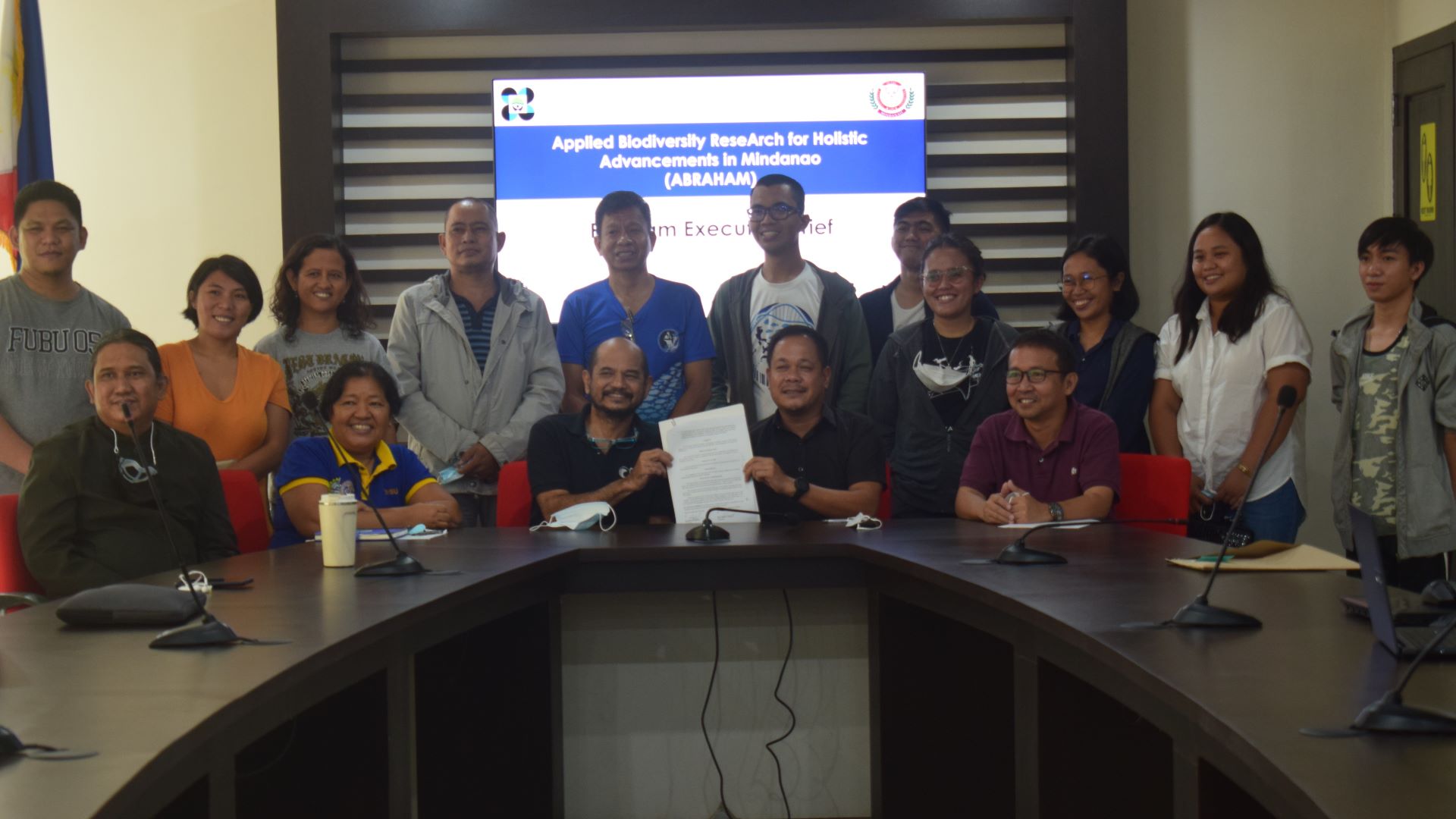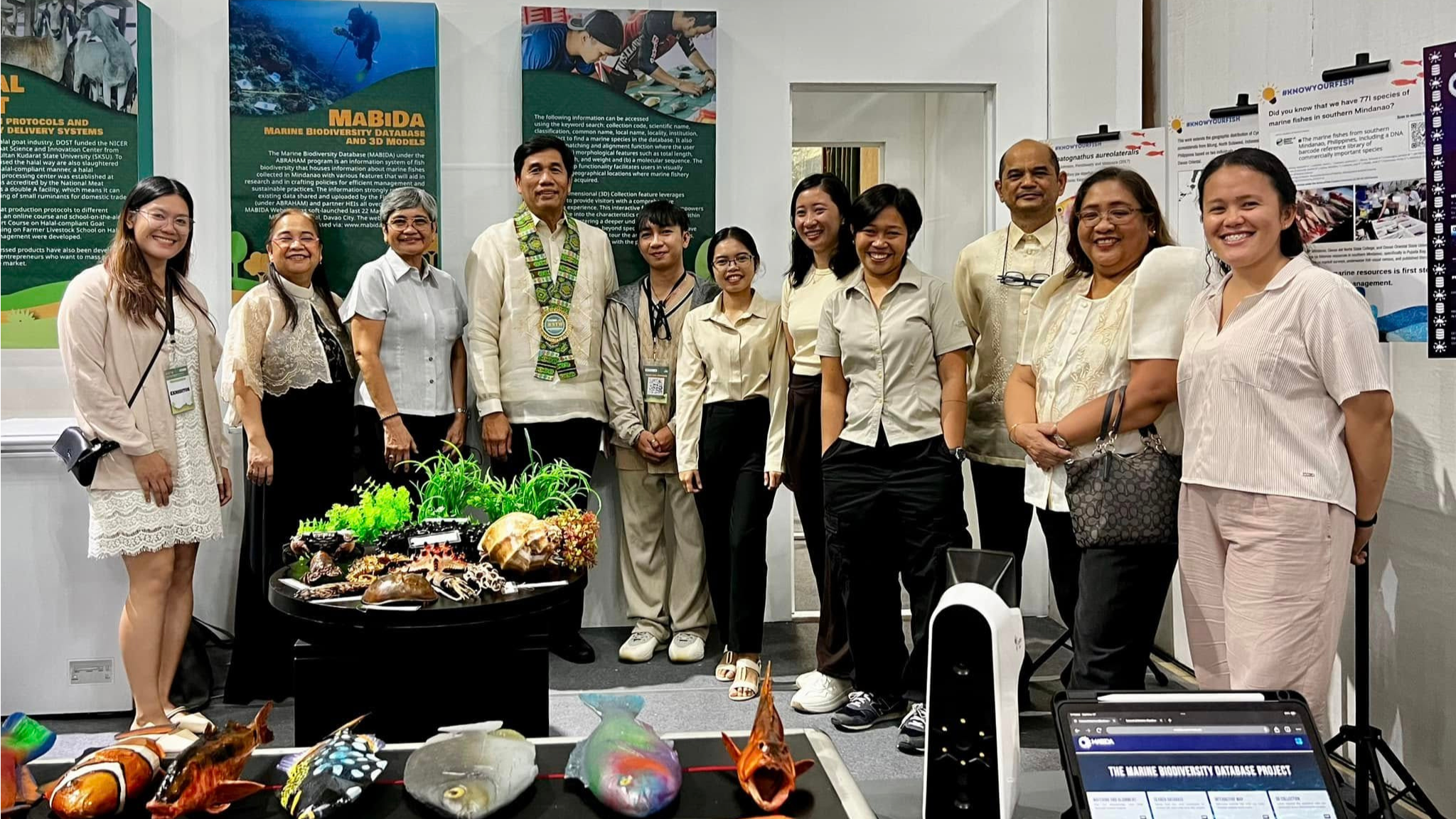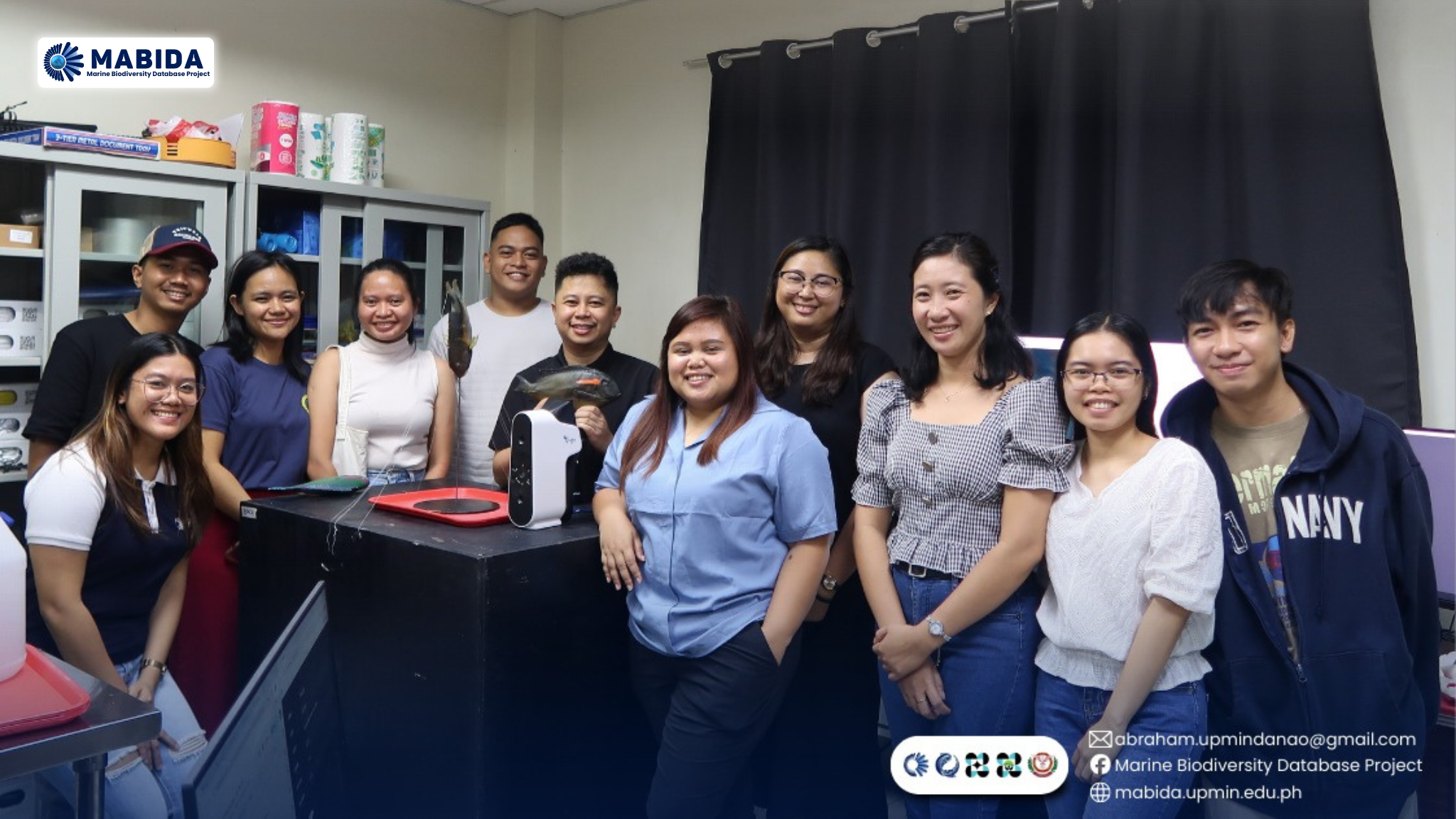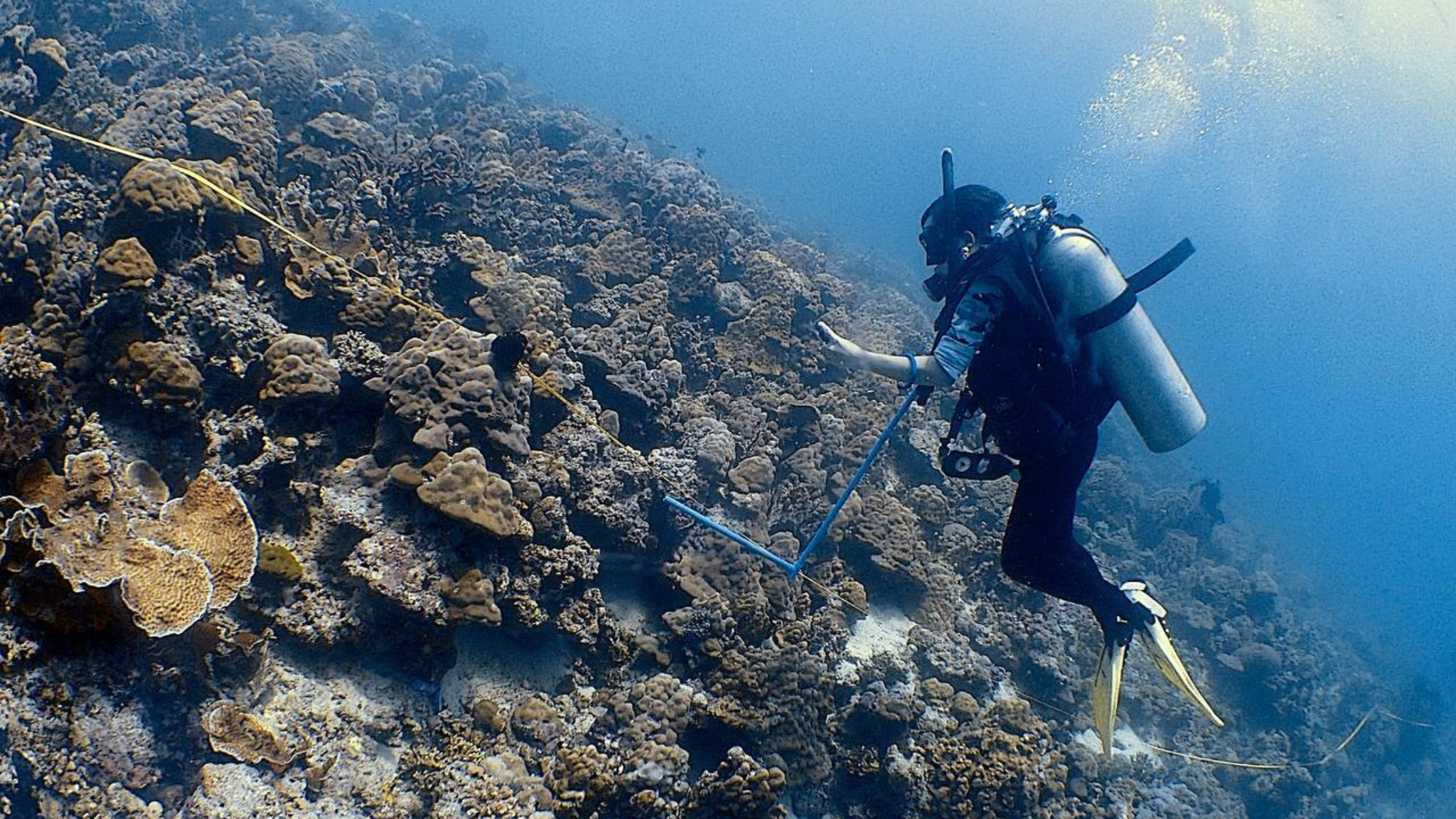
ABRAHAM Program Explores Collaboration with DOrSU for MABIDA
Written by Maria Joselle V. Luzon
Uploaded on Feb. 22, 2022
MATI CITY - The Applied Biodiversity Research for Holistic Advancements in Mindanao (ABRAHAM) Program staff visited the Davao Oriental State University (DOrSU) on February 22, 2022. ABRAHAM Project 2: MABIDA, or Marine Biodiversity Database, aims to collaborate with DOrSU to create a comprehensive database on Philippine reef fishes, specifically for the regions under the Celebes Sea and part of the Sulu Sea. DOrSU and other higher education institutions (HEIs) will participate in populating marine data into the database.
Dr. Cleto L. Nañola, Jr., ABRAHAM Program Head and Project Leader, and Mr. Leo Manuel B. Estaña, Project Leader, spearheaded the meeting with the DOrSU President, Dr. Roy G. Ponce, together with the faculty and staff from the Information Technology department and Marine Biology department.



